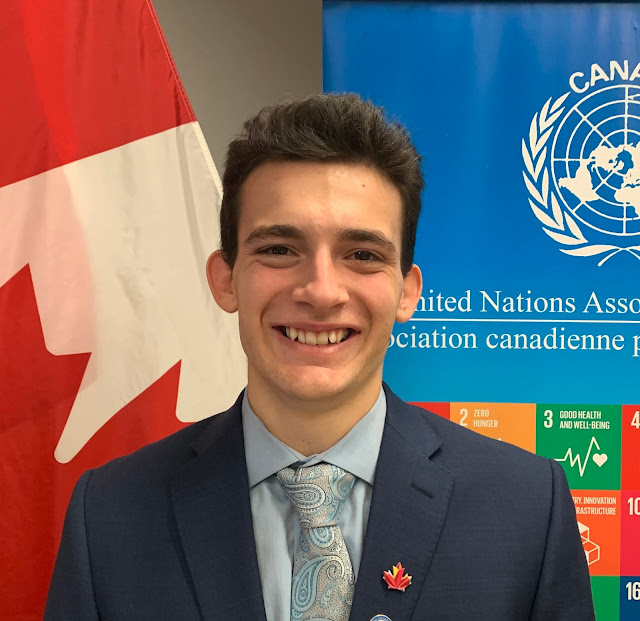Kelsey's Journey at the 11th Geneva Forum
Kelsey's Journey at the 11th Geneva Forum
By Kelsey Kliparchuk
It was a cold late-autumn afternoon in Chippewas of Rama
First Nation on Anishinaabe land when I found out that I was selected as a
delegate for the 11th Geneva Forum. I was attending a weekend workshop on the
topic of Allyship and Reconciliation which was facilitated by 4Rs Youth
Movement. As a non-indigenous person occupying indigenous land in Canada, this
learning is a lifelong process.
But little did I know before opening that acceptance
email, that I was preparing for an international knowledge exchange that would
further this process and "inner-standing" of the ongoing triumphs and
struggles of indigenous people and the roles of settler folks when it comes to
reconciliation.
A few weeks later, I was on a plane to Europe, where the
history of colonial violence began for indigenous people in North
America.
Landing in Geneva at 8am on a Sunday morning was a
jet-lag fuelled experience. Being the chipper delegates we were, we decided to
go on a short walk to burn off some energy. That walk turned into a 25km trek
through the cobblestone streets of old town, up to the infamous Jet d'Eau, and
then subsequently finding ourselves in the middle of Geneva's fête de
l'escalade which is their annual celebration to commemorate the claiming of the
city from France to Switzerland. Aromas from vats of hot cheese and mulled wine
filled the streets.
All the while, I couldn't help but think, what was this
land like before the battles, before the stone walls and designer clothing
stores?
Walking into the Palais des Nations, I was in both awe of
mid 20th century architecture and also eagerness to network and discuss how the
non-profits that we were representing can best collaborate with the
international community. What was to come was beyond my expectations.
The conference on the Rights of Nature shook my core.
Discussing the current ecocide occurring across the world was jarring. It was
like the puzzle pieces of human evolution and consciousness finally found their
place. This is a crisis born from the disconnection from the land. Yet, these
were predictions that indigenous communities have been making for hundreds, if
not thousands, of years. Indigenous earth guardians protect 80% of the
worlds biodiversity and are the key to environmental preservation. Just
consultation with indigenous communities who are directly affected by land
development and resource extraction is necessary in order to preserve the
planet, humankind and in turn our right to live in peace.
We wonder why the majority of people feel so disconnected
from one another but really, when was the last time we truly connected with
nature? Not just in an urban park, but truly were surrounded by fresh air
untainted with car fumes and with the sounds of nature surrounding us.
As I reflect on the expansive opportunity that was given
to me from the UNA-Canada,Canada Service Corps Program, I am filled with equal
parts gratitude and hope that change is happening and it is happening fast. Witnessing the creation of a proposal for the UN to implement a United
Declaration of the Rights of Nature/Rights of Mother Earth contributed to that
hope and was a highlight of my experience. The implementation of this
declaration would mean people could speak on behalf of the trees, the rivers,
and the mountains in courts of law.
The Lorax was really onto something.
If you are interested in supporting this movement, please
follow #EarthToo / #LaTerreAussi.




Comments
Post a Comment